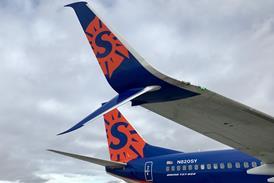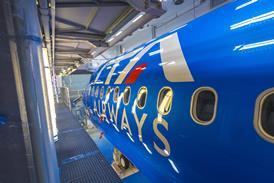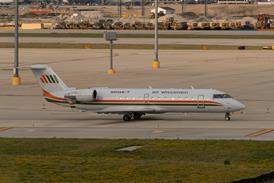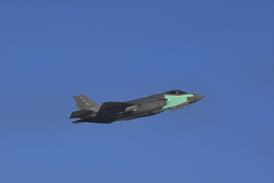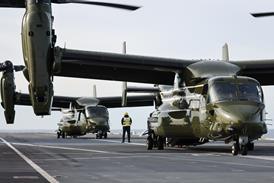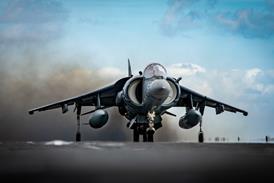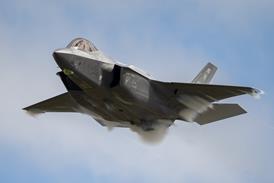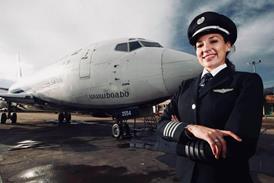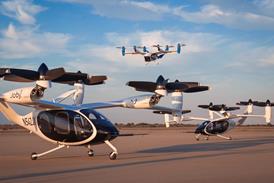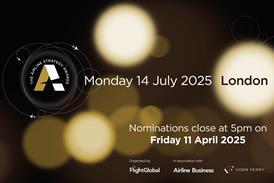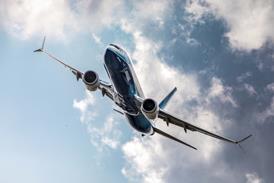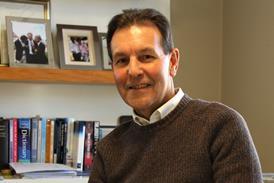Marc McGowan is spearheading Honeywell's efforts to win a bigger slice of the international defence market, having recently taken on the role of vice-president international defence and space, based in Switzerland. He talks to Andrew Doyle about the US company's overseas sales strategy and its ambitions for the Middle East market
Why has Honeywell appointed a dedicated vice-president for international defence business, and why now?
We wanted to take advantage of trends that we saw internationally. The first thing I was asked to do was put a strategic plan together for international. A couple of things came out as we took a look at the international defence market and where we stood relative to that.
The study was done just over a year ago, and at that time the crisis was just starting to hit. We looked at international defence budgets and they were projected to grow at a rate that was much greater than the US defence budget, not surprisingly. At the time we looked, there was about a 5% cumulative annual growth rate versus 1% for North America. We also took a look at our own capture rate within those budgets and saw ourselves with some opportunities.
 |
|---|
"We capture a larger percentage of the US defence budget than we do intentionally. That told us we had growth opportunities, should we be able to capitalise on them?" |
We capture a larger percentage of the US defence budget than we do internationally. That told us we had growth opportunities, should we be able to capitalise on them.
How does defence procurement differ in international markets, compared with the USA and Canada?
It's a lot less concentrated than it is in the USA, in that you're dealing with multiple customers rather than large procurement organisations that might procure on behalf of several entities or services. We decided the right thing to do was to take a "global is local" approach and put leadership directly in the region, much closer to where the customer base was, and then attempt to enhance the quality of the relationships and capitalise on the growth opportunities.
Don't international defence budgets tend to be small, relative to the USA?
What we found is that, given the growth rate of the budgets, eventually the size of the international budgets aggregated will be larger than the US defence budget. Somewhere between three and five years is what we looked at. Right now it's not as large, but it is projected to be as large and get larger. That led us to the conclusion that we probably should do something different structurally.
What have you done to improve your focus on international markets?
In July we formally rolled out the restructured organisation and one of our goals has been to internationalise the organisation with local leadership. I've changed out or added several positions that were formerly in the USA, or did not exist before. One in Germany - a business leader specifically for EADS to target Eurocopter as a growth opportunity for us - a leader for the entire Finmeccanica family of businesses, and we've just appointed a leader for India, and then a leader in Yeovil for the traditional BAE/UK Ministry of Defence products. Those businesses were led out of the USA previously.
How much of a growth opportunity does the Middle East region represent?
We've broken down the world into what we call high-growth regions, and the Middle East has certainly been identified as one of those. The budgets are not a huge percentage, but the growth rate is pretty healthy across the [five-year] strategic planning period. It is something over 5%, so not an insignificant opportunity for us.
The UAE has purchased the Alenia Aermacchi M-346. We have two engines on that platform, and that is going to be a big growth platform for us in the region. The Middle East is currently about 10% of our total defence business, and obviously we'd like to grow that given that those budgets are growing relative to other regions at a pretty good pace.
Which requirements are you focusing on at the Dubai air show?
The M-346 has been already sold to UAE. Aermacchi is finalising that contract. We've done some work with the UK MoD to replace the T55 CH-47 Chinook helicopter engine from a -712 to a -714 variant. We're working with the UAE government on that, which is a key opportunity for us in the region. The T-Hawk UAV has a unique hover-and-stare capability that is extremely useful in urban environments. We did some demonstrations for Jordan, and we have discussions under way for several other countries in the Middle East to have demonstrations. We've got more requests than we've got capacity to capture - that's one of our challenges. Many of the nations that we're talking about do not have formal requirements at the moment. Its capability is so new and so unique, that what we're finding is that customers are developing uses for it that we didn't envisage. The missions are almost being formed around the capability. It's been very interesting to observe. In many cases we have customers educating us as to how it can be employed.
As a US supplier, how much content do you supply for European fighter platforms?
We are on the Eurofighter Typhoon - we have auxiliary power unit and environmental control system components. For the Saab Gripen we have ECS and other components. But we have enormous content on the Lockheed Martin F-35 Joint Strike Fighter. And the Boeing F/A-18E/F Super Hornet - obviously we have a lot of avionics on that platform. I think JSF is certainly at the top of the list, and after that it's between the Super Hornet and the Gripen. We don't have a lot on the Dassault Rafale.
What are you doing in the Middle East in terms of industrial co-operation?
Predominantly, our work in industrial co-operation has been around repair and overhaul services. That tends to be true across all of our lines of business. We will tend to set up depot-level repair capability in specific countries such as Egypt. There's not a great deal of industrial capacity in many of these countries, and the best opportunity we have - and in some cases the only opportunity - is to give them their own support capability within their services, tending to work with other partners, and Abu Dhabi Aircraft Technologies and Mubadala are certainly in that category.
Source: Flight Daily News

